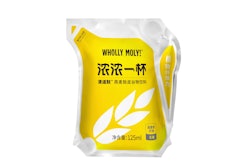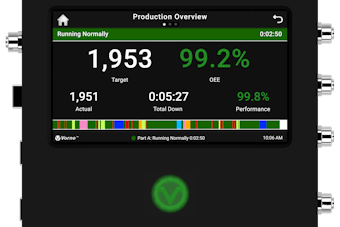Every industry globally has had to shift business plans and operations to adjust to the incredible changes in the market. Packaging, as an industry, is no exception and, in fact, is at the forefront of meeting the new demands for products and services caused by the COVID-19 pandemic. Accordingly, packaging professionals also have had to adjust both the technologies they work on and the way in which packaging development is done.
As an example, at the start of 2020 trends in food products saw a major emphasis on out-of-home items and convenience or “ready-made” meals. Given the lockdown measures in places like Europe, the entire industry shifted to in-home products for cooking. This required a shift in focus in product types and within packaging portfolios.
The focus on foodservice large packs such as bulk bags, buckets, and totes shifted to smaller, sometimes single-use products, which used different technologies and materials. Other trends would include a large jump in demand for cleaning products and personal hygiene products, some of which may even be new to a company’s portfolio.
See it Live at PACK EXPO Connects Nov. 9-13: Labeling, artwork and workflow management for Brands, by Esko, Brand Solutions. Preview the Showroom Here.
The resulting impact is that packaging professionals had to be ready to move between packaging technologies and systems. For example, a team that had skills in laminations may have had to change their focus to dispensing systems and rigid plastics. Teams with a diversity of talent and experience are best placed to cope with such a potentially radical shift. Even so, much of the development is done virtually, and three key enablers, discussed below, can be leveraged to support packaging development in this new, challenging virtual environment.
1. Leverage ecosystems to maximum effect
The reality is that many factories are still closed or operating with significantly reduced staff. This can create a delay in obtaining materials for and conducting trials for new pack systems. However, it is important to note that not all regions globally are in the same state of lockdown. While Europe may still be in a tighter state of lockdown, China and parts of Asia are back in operation to an increasing extent. This means that even if it’s not possible to qualify a new packaging system using local materials, the proof of principle may be able to be performed in a different region and the learning translated when more normal operations resume.
2. Use digital and simulation tools
As physical creation of a new pack may encounter delays, it can create an opportunity to perform digital optimization studies. Many tools are available (often at suppliers or third parties) that can simulate blow molding, injection molding, transit trials, and even graphic or masterbatch development. During a period of delay in a development project, it is possible to virtually optimize a component. This will help ensure that quality will be improved, and risk decreased when the pack is brought into physical reality. This also can make up time on the back end of a launch timing, as it helps minimize or even avoid the need for reiterative adjustments.
3. Focus on long-term planning
As many short-term projects, product launches, and deliverables are delayed, it can create space for longer-term planning. Typically, attention and resources are centered around impending deadlines and immediate pressures. Delays due to the current situation, however, allow professionals to see past the immediate, allowing creation of longer-term roadmaps for innovation, sustainability, cost savings, etc. It is also an ideal time to build, expand, and strengthen ecosystem partnerships to develop new technologies and value chains for the future.
The planning for the expansion of capacity on mechanical and chemically recycled polymers, for example, in Europe has been developed over the last few years and has even accelerated during 2020, with more companies making public commitments and building partnerships to address environmental change. The related planning and development of collection and recycling systems also has not paused due to the pandemic, though the physical manifestation may take longer than originally planned. Other activities that can be done during this period include portfolio simplification, elimination of obsolete items, and other efficiency-improving activities.
Leveraging these enablers can help drive development in such a unique and uncertain time. The greatest assets, however, remain the people and professionals themselves. The health, well-being, and safety of our teams and colleagues need to be top priority as the packaging industry navigates these challenging times.
The author, Mike Ross, is Senior Packaging Manager-Global at Unilever Food Solutions, Wageningen, The Netherlands. He is an IoPP Certified Packaging Professional. To learn more about IoPP, visit www.iopp.org or email [email protected].
PACK EXPO Connects–November 9-13. Now more than ever, packaging and processing professionals need solutions for a rapidly changing world, and the power of the PACK EXPO brand delivers the decision makers you need to reach. Attendee registration is open now.


























